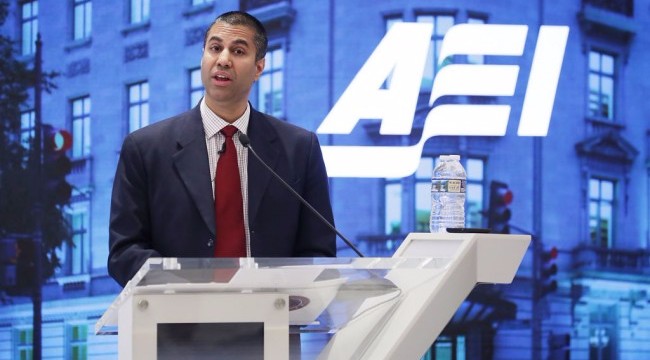
FCC chairman Ajit Pai recently announced a plan to undo net neutrality regulations, paving the way for internet service providers to offer tiered packages to both consumers and websites while possibly throttling speeds or even outright blocking certain websites while prioritizing others. On Tuesday, Pai addressed the resulting criticism with an absolutely Onion-esque defense arguing that etting rid of net neutrality will actually make the internet better.
Responding to criticism from Silicon Valley, Pai said that the tech giants are the ones who are blocking differing viewpoints, actually. “They might cloak their advocacy in the public interest,” he said, “but the real interest of these internet giants is in using the regulatory process to cement their dominance in the internet economy.”
Pai specifically pointed to the example of Twitter (which is not an internet service provider, but a private company) allowing a Republican congresswoman to promote a tweet about abortion after initially refusing:
“Now look: I love Twitter. But let’s not kid ourselves; when it comes to a free and open Internet, Twitter is a part of the problem. The company has a viewpoint and uses that viewpoint to discriminate.
“And unfortunately, Twitter is not an outlier. Indeed, despite all the talk, and all the fear, that broadband providers could decide what internet content consumers can see, recent experience shows that so-called edge providers are in fact deciding what content they see. These providers routinely block or discriminate against content they don’t like.”
Pai’s line of thinking is funny for a number of reasons but most notably because Twitter would still be able to determine what content can and can’t be promoted if net neutrality is revoked.
Pai also took time to slam some of the Twitter users who have urged him to not repeal net neutrality with the stunning discovery that celebrities use their popularity to raise awareness of issues. Of critics like Cher, Mark Ruffalo, and Kumail Nanjiani, Pai said, “Hollywood celebrities, whose large online followings give them out-sized influence in shaping the public debate.”
The FCC is slated to vote on the plan in December.
(Via Recode)
